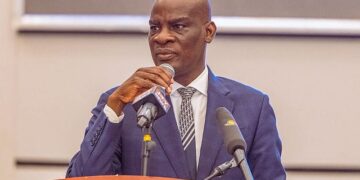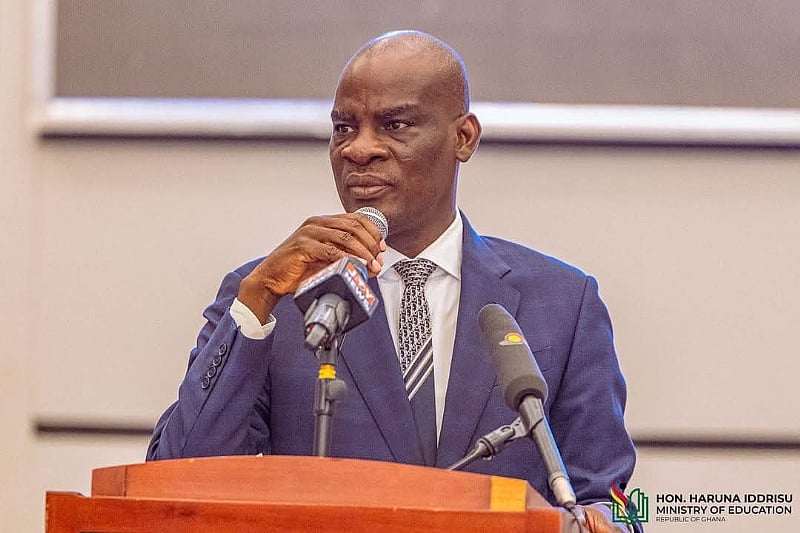Minister of Education, Haruna Iddrisu, has unveiled an ambitious package of education reforms as part of the government’s 2026 budget, aimed at expanding access, improving infrastructure, and safeguarding the needs of vulnerable learners.
Presenting the sector’s allocation under the 2026 budget, the Minister said government is “fully committed to breaking barriers to education” through major investments in both human capital and physical facilities nationwide.
Mr. Iddrisu reaffirmed government’s pledge to sustain and deepen free education at multiple levels of the system.
He announced that government will introduce free tertiary vocational education, backed by a coordinated funding arrangement between the Student Loan Trust and the Ghana Scholarship Authority, to guarantee timely disbursement of support to eligible students.
In addition, an amount of GH₵4.2 billion has been set aside to sustain and enhance the Free SHS policy. According to the Minister, this allocation is intended to ensure that “no child is left behind at the secondary level due to financial constraints.”
The 2026 budget also prioritises the expansion and upgrading of educational facilities across the country.
Government plans to construct 200 kindergarten blocks, 200 primary schools, and 200 junior high schools to reduce overcrowding and close infrastructure gaps, particularly in underserved communities.
Teacher Accommodation
To improve teacher welfare and incentivise postings to hard-to-reach areas, Hon. Iddrisu announced a public–private partnership arrangement to deliver 50,000 housing units for teachers nationwide.
The Minister further outlined several social protection measures designed to cushion households and support vulnerable learners:
No Fees for First-Year Students
All first-year students, especially at the secondary level, will continue to benefit from a strict no-fees policy.
On the Free Education for Persons with Disability initiative,
Mr. Iddrisu reiterated that education at all levels will remain completely free for persons with disability, underscoring government’s commitment to inclusive education.
He also highlighted the “Mahama Cares” initiative, a social intervention package targeted at supporting learners and households in need, particularly in deprived and marginalised communities.
Mr. Iddrisu noted that the 2026 education allocation is designed not only to expand access but also to promote equity and improve learning outcomes.
“These interventions are meant to ensure that children from poor, rural, and marginalised backgrounds have the same opportunities as those in urban and privileged settings,” he said, adding that government will collaborate with all stakeholders to ensure the effective implementation of these initiatives.




















